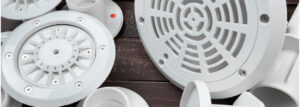Fresh Water System vs Heating System

In a condominium, there can be separate considerations for the fresh water supply and the heating system. Here are some common problems associated with both aspects:
1. Fresh Water Supply:
- Insufficient Hot Water: This can be caused by a malfunctioning water heater, sediment buildup in the tank, a faulty mixing valve, or issues with the plumbing system.
- Low Water Pressure: Low water pressure throughout the condominium can result from problems with the municipal water supply, plumbing leaks, a faulty pressure regulator, or clogged pipes.
2. Heating System:
- Boiler Malfunctions: Boilers can experience issues such as ignition problems, malfunctioning thermostats, faulty pressure relief valves, or water leaks. These problems can lead to inadequate heat or complete heating system failures.
- Recirculation Line Problems: Leaks or clogs in recirculation lines can reduce hot water availability or hinder efficient operation. Circulation pumps can also fail, affecting the proper functioning of the recirculation system.
- Zone Control Valve Issues: Malfunctioning zone control valves can result in uneven heating, with some areas being excessively heated while others remain cold. Valves that fail to open or close properly impact temperature control in different zones.
- Glycol System Concerns: If glycol is used in the heating system, issues can arise if the glycol mixture becomes diluted or contaminated, leading to reduced antifreeze properties, freezing, potential pipe or component damage, and inefficient heat transfer.

Common problems related to both the fresh water supply and heating system include:
- Leaks: Leaks in pipes, valves, or connections can occur in both the fresh water supply and heating system, resulting in wasted water, reduced efficiency, and potential property damage.
- Inadequate Maintenance: Lack of regular maintenance can contribute to various problems, including reduced efficiency, increased wear and tear on components, and higher chances of breakdowns.
- Improper Installation: Incorrect installation of plumbing or heating components can lead to leaks, inadequate performance, and other issues. It’s important to hire qualified professionals for installation and adhere to proper building codes and regulations.
To address specific issues with the fresh water supply or heating system in a condominium, it is advisable to contact professional plumbers or HVAC technicians who specialize in the respective areas. They can diagnose the problem, perform repairs or maintenance, and ensure the systems are functioning optimally. Additionally, communicating with the condominium association or property management can help coordinate any necessary actions or resolve potential common issues affecting multiple units.
Maintenance plans are crucial for ensuring the optimal performance and longevity of both the fresh water supply and heating system in a condominium. Here’s how maintenance plans can help:
1. Fresh Water Supply Maintenance:
- Regular Inspections: A maintenance plan can include periodic inspections of the water heater, plumbing connections, and fixtures to identify any signs of leaks, corrosion, or other issues.
- Sediment Flushing: Flushing the water heater periodically helps remove sediment buildup, improving its efficiency and preventing potential problems.
- Valve and Pressure Checks: Maintenance professionals can examine and test pressure relief valves, mixing valves, and other components to ensure they are functioning properly.
- Pipe Insulation: Proper insulation of exposed water pipes can help prevent freezing and reduce heat loss, improving energy efficiency.
2. Heating System Maintenance:
- Boiler Servicing: Regular maintenance visits by qualified technicians can include cleaning, inspecting, and tuning the boiler to ensure efficient and safe operation.
- Recirculation Line Checks: Technicians can inspect recirculation lines, check for leaks or clogs, and verify the proper functioning of circulation pumps.
- Zone Control Valve Inspection: Maintenance visits can involve checking zone control valves, ensuring they open and close correctly, and adjusting them if necessary.
- Glycol System Maintenance: If glycol is used, maintenance professionals can test and maintain the glycol mixture to ensure its proper concentration and prevent freezing or system damage.
Common elements of maintenance plans for both systems:
- Filter Replacement: Regular replacement of filters in the water supply and heating system helps maintain optimal performance and prevents clogs.
- System Calibration: Thermostats and controls can be calibrated and tested to ensure accurate temperature control and system efficiency.
- Leak Detection: Maintenance visits can include leak detection checks to identify and address any water or heat leaks promptly.
- System Efficiency Assessment: Professionals can evaluate the overall efficiency of the systems and provide recommendations for improvements or upgrades.
By enrolling in a maintenance plan, condominium owners can benefit from proactive care, early problem detection, and professional expertise to address issues promptly. These plans can help extend the lifespan of the systems, reduce the likelihood of breakdowns or major repairs, and maintain optimal comfort and energy efficiency.
It’s advisable to consult with a reputable maintenance service provider or reach out to the condominium association or property management to inquire about available maintenance plans and recommended service providers specific to the condominium complex.


